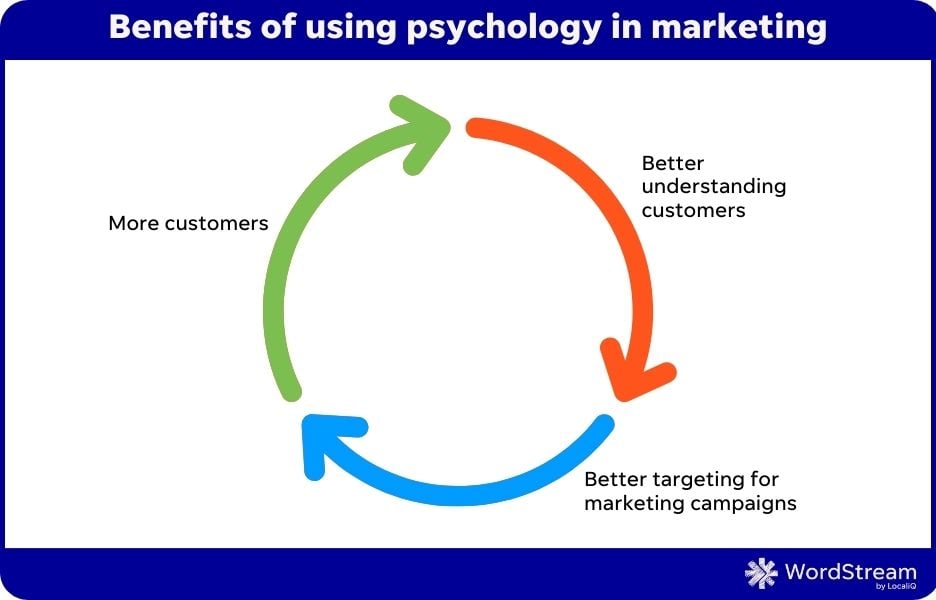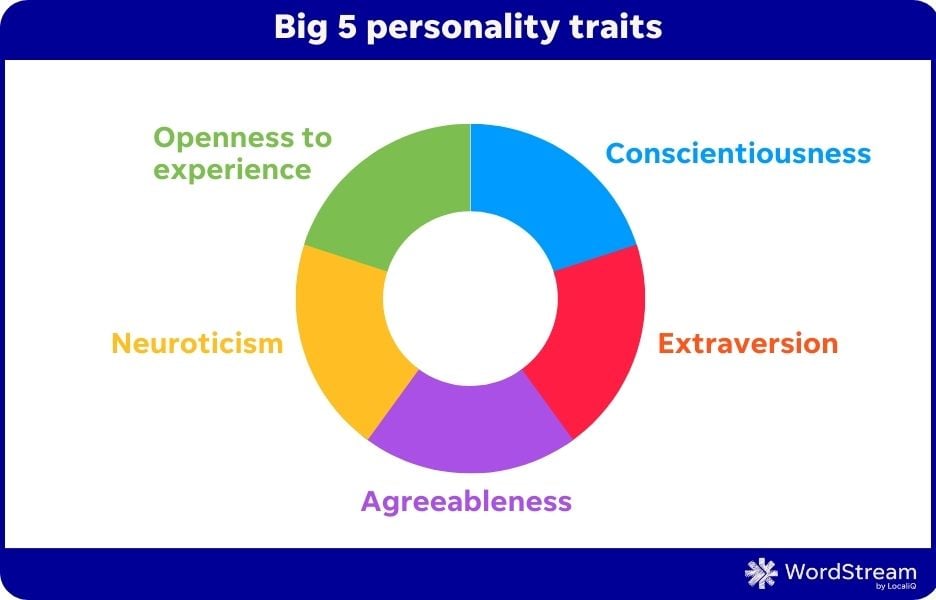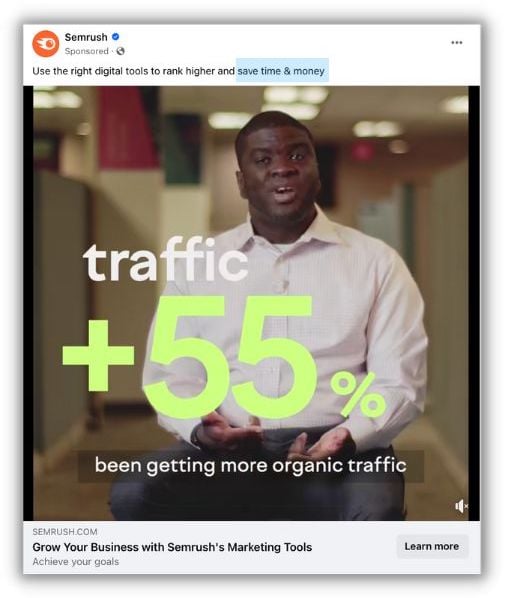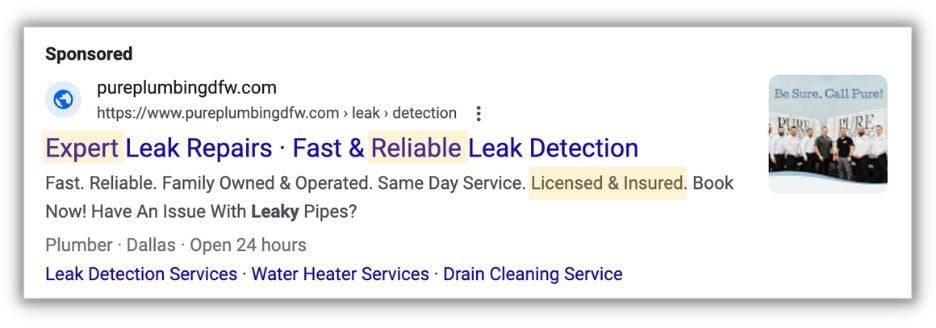Throughout my journey in the marketing realm, I’ve encountered a diverse range of professionals, each with their own unique strengths and weaknesses. Among them, I’ve noticed a particular group that possesses an uncanny intuition when it comes to understanding human behavior and effectively connecting with target markets. Interestingly enough, many of these individuals have a genuine interest in psychology, and it became evident that their deep understanding of human nature helped them to succeed in their marketing roles.
Now, let me be clear—I don’t hold a formal degree in psychology. However, I’ve developed a fascination with the subject, treating it as a personal hobby. Over time, I’ve discovered the immense relevance of psychology to my marketing career.

Becoming truly proficient in this field entails more than just crunching numbers and crafting catchy headlines. It demands a fundamental intuition nurtured by a deep comprehension of human behavior and the significant role that individual personalities play in shaping it.
In this article, I’ll delve into the world of psychology’s big five personality traits and explore how this knowledge can be effectively applied to your paid marketing endeavors.
Table of contents
- What are the big five personality traits?
- How to use each model of personality to tailor your marketing strategy
- How to identify which personality traits to appeal to in your marketing
- When (and when not) to use personality types in your campaign targeting
What are the big five personality traits?
The big five personality traits, also known as the five-factor model (FFM), are a widely accepted framework used in psychology to describe and categorize human personality. These traits are considered the fundamental dimensions of personality that capture the most significant individual differences.
The five traits are:
- Openness to experience
- Conscientiousness
- Extraversion
- Agreeableness
- Neuroticism

We’ll break each trait down individually in the next section.
How to use the five basic personality traits in your marketing
How can marketers leverage their understanding of the big five personality traits to craft more effective marketing campaigns that truly resonate with their audiences? Let’s dive into each of those personality traits and how to use them in your campaigns.
Openness to experience
This personality trait refers to the degree of a person’s intellectual curiosity, creativity, and preference for novelty and variety. Individuals high in openness tend to be imaginative, adventurous, and open-minded.
They are often willing to try new things, appreciate art and beauty, and enjoy intellectual pursuits. Those low in openness are more traditional, practical, and prefer familiarity over novelty.
How to appeal to this personality type in your marketing
Capturing the attention of individuals high in openness to experience requires embracing innovation, creativity, and a sense of adventure. Here are some ways to leverage it in your marketing:
- Craft campaigns that spark curiosity, ignite imagination, and challenge the status quo.
- Showcase how your product or service brings new perspectives, fosters self-discovery, or offers unique experiences.
- Leverage emerging trends, cutting-edge technologies, and out-of-the-box concepts to appeal to their appetite for novelty and unconventional thinking.

Conscientiousness
Conscientiousness describes the degree to which a person is organized, responsible, reliable, and self-disciplined. Individuals high in conscientiousness are generally goal-oriented, diligent, and dependable. They are often well-organized, pay attention to details, and are committed to achieving their goals.
Conversely, individuals low in conscientiousness tend to be more spontaneous, flexible, and less focused on structure and organization.
How to appeal to this personality type in your marketing
The conscientiousness factor is all about reliability, organization, and attention to detail. Tailoring your paid media campaigns to appeal to this trait can go a long way. Here are some ways to do this:
- Highlight features such as efficiency, precision, and adherence to high standards.
- Showcase how your product or service streamlines processes, saves time, or ensures meticulous quality.
- Provide clear instructions, guarantees, and testimonials to instill confidence in conscientious individuals who appreciate thoroughness and reliability.

Extraversion
Extraversion refers to the extent to which a person seeks social interaction, excitement, and stimulation from the external environment.
Extraverts are outgoing, assertive, and energetic. They enjoy being around people, are often talkative and sociable, and gain energy from social interactions.
Introverts, on the other hand, prefer quieter, less stimulating environments, and tend to be more reserved and reflective.
How to appeal to this personality type in your marketing
Understanding the spectrum of extraversion within your target audience can be a game-changer. Are they outgoing and sociable individuals who thrive in social settings? Or do they lean towards introversion, preferring quieter, more introspective experiences? By tailoring your messaging and ad formats to align with their preferences, you can strike a chord with each segment.
For extraverts, consider:
- Highlighting the social aspects of your product or service.
- Showcasing vibrant gatherings and interactions.
For introverts, consider:
- Emphasizing the personal benefits.
- Highlighting the value of self-reflection that your offering can provide.

Agreeableness
Agreeableness represents the degree to which a person is warm, compassionate, cooperative, and considerate of others. Individuals high in agreeableness are typically empathetic, kind, and value social harmony. They are inclined to be helpful, trustful, and forgiving. People low in agreeableness may be more competitive, skeptical, and less concerned about others’ feelings and needs.
How to appeal to this personality type in your marketing
Acknowledging the level of agreeableness within your audience helps you shape your messaging to foster a sense of trust, harmony, and cooperation.
Is your target audience composed of individuals who highly value collaboration and teamwork? If so, emphasize how your product or service promotes unity and creates positive relationships.

For audiences with lower agreeableness, focus on unique selling points, individuality, and empowerment to resonate with their desire for independence and self-expression.
Neuroticism
Neuroticism, sometimes called emotional instability, refers to the extent to which a person experiences negative emotions such as anxiety, depression, and moodiness. Individuals high in neuroticism are more prone to worry, experience frequent mood swings, and may have a heightened sensitivity to stress. Those low in neuroticism tend to be more emotionally stable, resilient, and less affected by negative emotions.
How to appeal to this personality type in your marketing
Understanding the emotional landscape of your audience is vital for creating impactful paid media campaigns. Consider the range of neuroticism within your target market—are they prone to anxiety and stress or more emotionally stable?
For those with higher neuroticism, focus on alleviating their concerns and addressing pain points. Highlight the security, peace of mind, and stress relief your offering can provide.

For emotionally stable individuals, emphasize the positive aspects, such as joy, serenity, and emotional well-being, that come from engaging with your product or service.
How to identify which personality traits to appeal to in your marketing
The big five personality traits are just that, a combination of individual personality factors that comprise a whole. So how do you go about learning where your ideal customer lands on this spectrum of personality? There are a couple of ways you could collect data.
Distribute a personality test to your customers
One way to identify the right personality trait (or traits) to target is by simply selecting a sample size of your best customers and incentivizing them to partake in a personality test. From these results, you can have a general outline of commonalities among what you consider to be your target audience.

Conduct testing through your marketing channels
This option will be more time-consuming and will require you to be very scientific in your approach.
You will want to map out each personality trait and through ad copy, imagery, tone, etc., really hone in on how each trait is represented in a marketing format.
You will then want to run the variations against each other gathering as much data as possible for each. From there you will be able to map a general outline of your target audience’s personality. Now, to be clear, personality is an individual set of traits. However, that doesn’t mean you won’t find commonalities amongst larger data sets of individuals–particularly within certain industries.
Let’s say, for example, your target audience was comprised of sales professionals. Although the individuals within that profession may vary greatly on a personal level, there are most likely common personality traits among them that directed them to and helped them succeed in their chosen profession. A sales professional may be high in extroversion, moderate to low in agreeableness, moderate in conscientiousness, low in neuroticism, and across the board in openness to experience. This information is highly valuable when considering how you market to these people.
When (and when not) to use the big five personality traits in your targeting
You can use personality traits to target your marketing when you have a clear understanding of who your target audience is and whether or not they fall into any of these traits.
However, It’s important to keep in mind that the less niche your target audience and more importantly your brand is, the less effective optimizing for personality becomes.
Let’s say for example that you sell pencils. Everyone can need and use pencils across a broad spectrum of personality traits. If your company is just plain old pencils, you may be able to sell to everyone, but your product isn’t going to necessarily stand out to anyone in particular. The marketing may be more focused on the quality or cost of the product versus anything else.
This is where the importance of brand identity comes into play. Take beer for example. Beer is beer, everyone over the legal age can purchase and drink beer, however, many beer companies tailor their marketing to accentuate certain lifestyles.

This Heineken ad for sports fans may also be targeting openness to experiences with it’s “all fans” messaging.
So the personality traits that your brand conveys, attracts, or attempts to be attractive to fall within a particular demographic and therefore a particular set of personality traits.
Applying the big 5 personality traits for better marketing
Marketing is, for the most part, the art of persuasion. The term persuasion or persuasiveness often resonates in a manipulative, Machiavellian way for a lot of people. Instead, I encourage you to view persuasion through the lens of commonality. What I mean by that is we are most easily persuaded by those we perceive to be most like us or those we share common values or interests with. There is a fine line between trust and persuasion in the business of selling goods and services. But, let’s bring this all back to paid marketing.
By tailoring our messaging, imagery, and tone to align with the unique traits of our audience, we can strike a chord that resonates deeply. Whether it’s appealing to the extraversion of social butterflies, fostering trust and cooperation for agreeable individuals, showcasing reliability and attention to detail for the conscientious, alleviating concerns for those prone to neuroticism, or sparking curiosity and embracing novelty for the open-minded, understanding and leveraging these personality traits can transform the impact of our marketing efforts.
Gathering insights on your target audience’s personality traits may involve conducting personality tests, collecting data from your best customers, or conducting scientific testing through our marketing channels. While personality remains an individual set of traits, we can uncover commonalities among larger data sets, particularly within certain industries, to inform our marketing strategies effectively.







